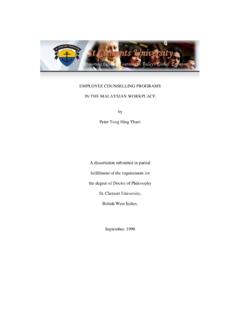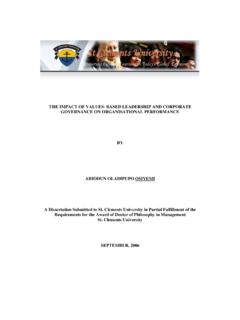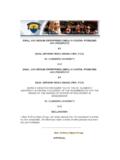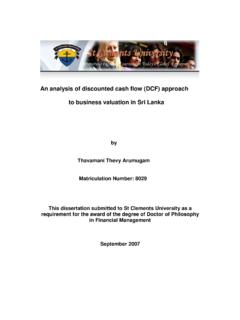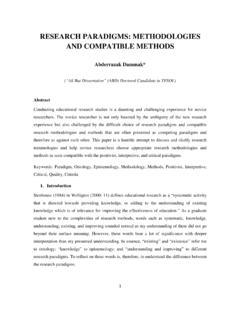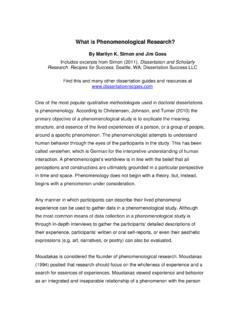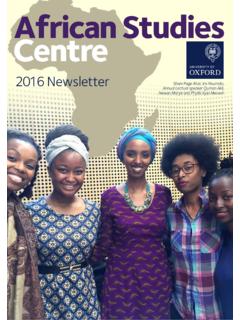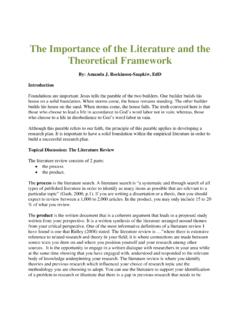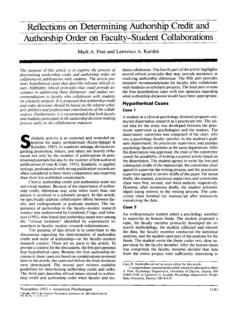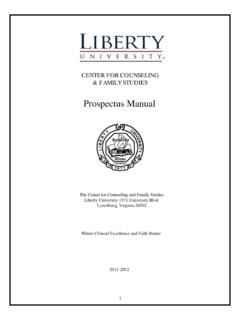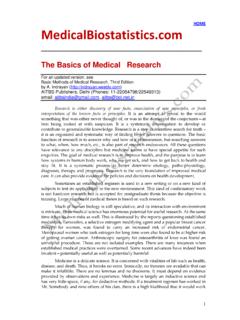Transcription of RESEARCH PARADIGMS: METHODOLOGIES AND …
1 1 RESEARCH PARADIGMS: METHODOLOGIES AND compatible methods Abderrazak Dammak* ( All But dissertation (ABD) doctoral Candidate in TESOL) Abstract Conducting educational RESEARCH studies is a daunting and challenging experience for novice researchers. The novice researcher is not only haunted by the ambiguity of the new RESEARCH experience but also challenged by the difficult choice of RESEARCH paradigms and compatible RESEARCH METHODOLOGIES and methods that are often presented as competing paradigms and therefore as against each other. This paper is a humble attempt to discuss and clarify RESEARCH terminologies and help novice researchers choose appropriate RESEARCH METHODOLOGIES and methods as seen compatible with the positivist, interpretive, and critical paradigms.
2 Keywords: paradigm , Ontology, Epistemology, Methodology, methods , Positivist, Interpretive, Critical, Quality, Criteria 1. Introduction Stenhouse (1984) in Welligton (2000: 11) defines educational RESEARCH as a systematic activity that is directed towards providing knowledge, or adding to the understanding of existing knowledge which is of relevance for improving the effectiveness of education. As a graduate student new to the complexities of RESEARCH methods , words such as systematic, knowledge, understanding, existing, and improving sounded normal as my understanding of them did not go beyond their surface meaning.
3 However, these words bear a lot of significance with deeper interpretation than my presumed understanding. In essence, existing and existence refer me to ontology; knowledge to epistemology; and understanding and improving to different RESEARCH paradigms. To reflect on these words is, therefore, to understand the difference between the RESEARCH paradigms. 2 But what constitutes a paradigm , in this context? A paradigm consists of four parts: ontology, epistemology, methodology, and methods . Ontology is concerned with .. the nature of existence (Crotty, 1998: 3) which Grix (2004) considers as the departure point of all RESEARCH .
4 Epistemology, on the other hand, deals with the nature of knowledge (Crotty, 1998: 8). It deals with the nature of the relationship between the knower and the known. The relationship between ontology and epistemology is fundamental. Grix (2004: 58) states that ontology and epistemology can be considered as the foundations upon which RESEARCH is built. It is the researcher s ontological and epistemological assumptions that inform the choice of methodology and methods of RESEARCH . methods are the range of approaches used in educational RESEARCH to gather data which are to be used as a basis for inference and interpretation (Cohen : 44).
5 Methodology is the strategy, or action plan that justifies the use and choice of certain techniques (Crotty, 1998). Therefore, methods of enquiry are reflections of the researchers assumptions about the nature of reality and the nature of knowledge. Most of the time, these assumptions are not explicit; a fact which makes it the role of novice doctoral students, like myself, to unveil them in critiquing the functions of studies. This is what I will try to do in Part B. In part A, however, I will discuss three RESEARCH paradigms: Positivist, Interpretive, and Critical. 2. Positivist Approach Positivism is closely associated with the French philosopher Auguste Comte (Pring, 2000).
6 Crotty (1998) holds that though Comte, who popularized the word positivism, is considered as the founder of positivism, what he said about experiment, observation, and cause-effect relationship can be echoed in what was earlier preached on by Francis Bacon. Positivists think that they can apply methods of the natural sciences on the practices of social sciences. Positivist social scientists try to replicate procedures followed by natural scientists to control and understand the natural world. They are committed to value neutrality, statistical measurement, quantifiable elements, and observable events to establish causal laws (Seale, 2000).
7 Grix (2004) presents the most significant premises of the positivist approach (what does Girx say?). Positivists believe in the possibility of establishing cause-effect relationship. They are after regularities to make predictions and establish scientific laws and that, based on this factor; it is possible to use scientific methods to analyze the social world. Positivists believe that the role of the neutral researcher is to present an objective explanation of matters of concern and predict 3 laws (such as what?). From the previous principles, we can understand the ontological and epistemological assumptions of the positivists.
8 Ontology and Epistemology Positivists hold a realist, foundationalist ontology. Guba and Lincoln (1994: 109) state that an apprehendable reality is assumed to exist, driven by immutable natural laws and mechanisms . For them, social reality is external to individuals. Objects exist independently and have no dependence to the knower (Cohen et. al, 2003: 6). Pring (2008: 58) gives a similar definition by stating that realism is the view that there is reality, a world, which exists independently of the researcher and which is to be discovered. According to this definition, Pring draws a clear separation between the knower and the subject known to the knower.
9 Epistemologically, positivists hold a dualist and objectivist view. Being objectivist is a fundamental aspect of any competent inquiry (Creswell, 2009). The knower and the object to be known are different entities. Neither of them exerts influence on the other. Positivists are interested in facts and hold that RESEARCH should be value free. Threats to validity are controlled by preventive procedures. Causal relationships can be established and therefore generalization and replicability become possible. Methodology Positivist methodology aims at explaining relationships (of what?). Cause and effect relationship is one of the tenets of the positivist paradigm (Creswell, 2009; Grix, 2004; McDonough and McDounough,1997).
10 Experimental designs seem to provide an umbrella to explain this causal relationship (Creswell, 2009). Questions and hypotheses are tested and verified by experiments. The researcher should seek a cause-effect relationship between the independent variable, which is the intervention and cause of any improvement, and the dependent variable, the outcome of the intervention. The attribution of the effect to the independent variable can be warranted by the manipulation of other variables that may threaten RESEARCH validity. True experimental and quasi-experimental designs are both experimental; with the main difference that the sample in the quasi-experimental is not assigned randomly (Best and Khan, 1993).

